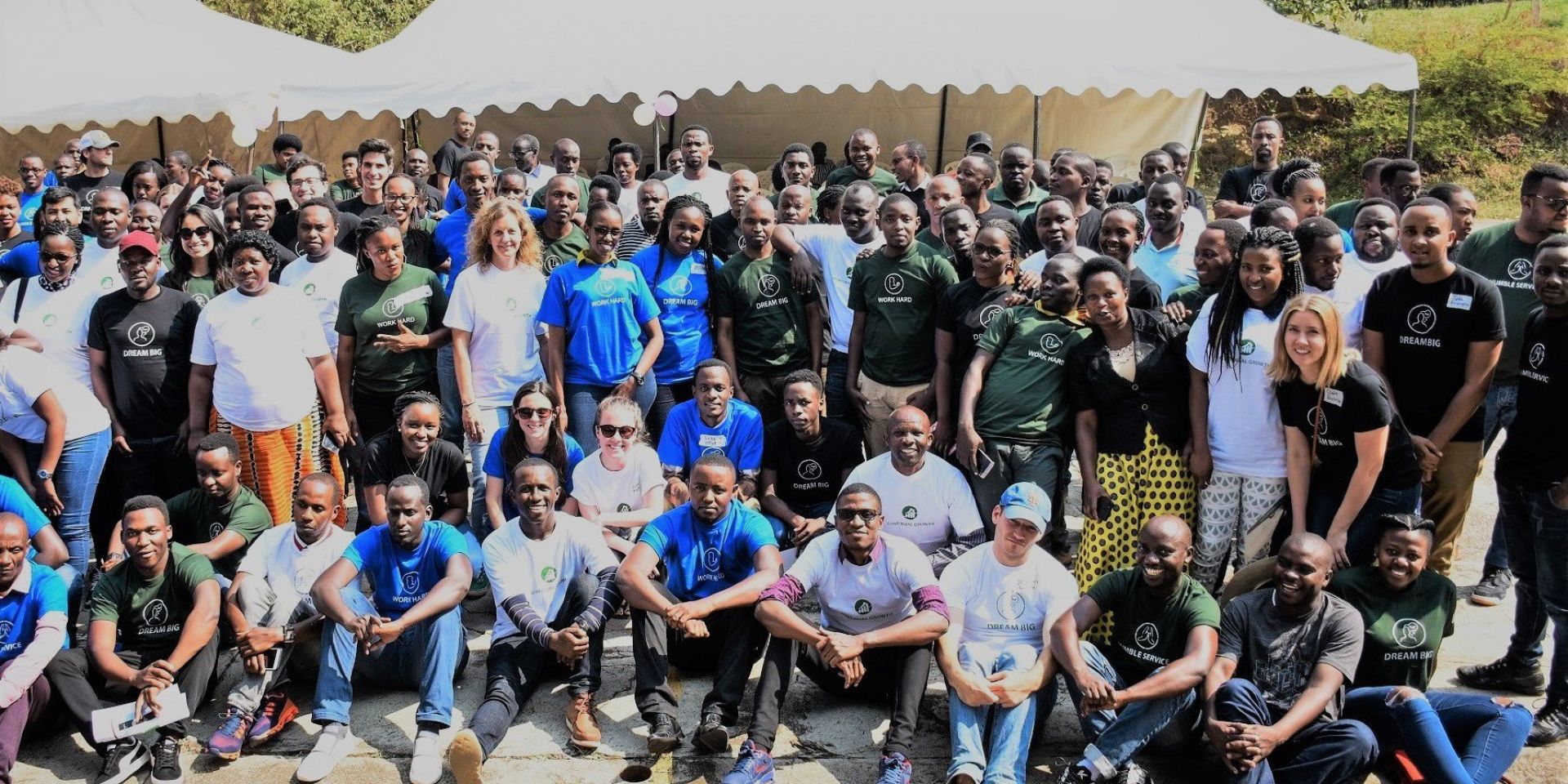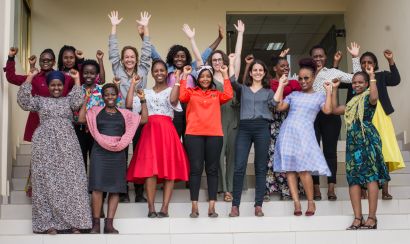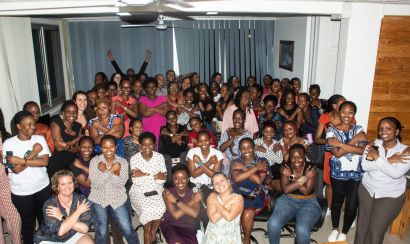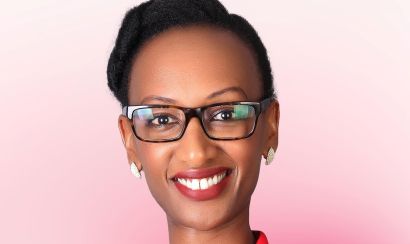From Commitment to Practice: Reflections on One Acre Fund’s DEI Journey
In 2020, One Acre Fund committed to bolder Diversity, Equity, and Inclusion (DEI) goals to accelerate our journey to a fairer and equitable organization where everyone can thrive. Our DEI journey has been a time for uncomfortable conversations, introspection, and constant learning.
To steward this important work, we set up a DEI Council (DEI-C), bringing together a cross-section of thought leaders from within the organization who would help us address gaps in representation and inclusion. In this piece, Marika West, Amari Alexander, and Ronny Mutua from the DEI-C reflect on our two-year journey of listening carefully, setting priorities, and rolling-out positive changes to improve the lived experience of all staff at One Acre Fund.
How and why did the DEI council come into being, and what is its purpose?
Amari: Two years ago, One Acre Fund was challenged by its staff to urgently implement measures that would create a more diverse, inclusive, and equitable organization. The DEI-C was born from that challenge. Our main goal is to facilitate a safe space where we can intentionally challenge biases and deconstruct power dynamics and any culture contributing to negative staff experiences. I believe our open and uncomfortable conversations have allowed for healing from past experiences and helped the organization to move forward and start new conversations.
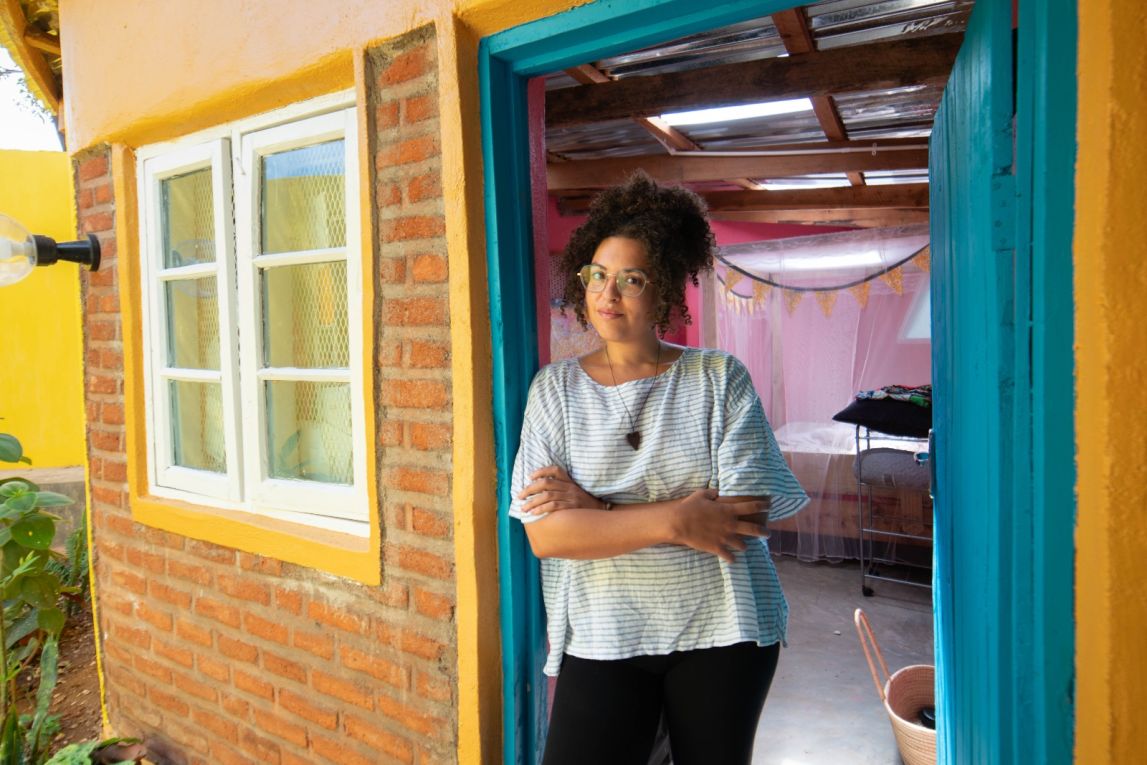
Ronny: The DEI-C consists of 14 staff members and our purpose can be broken down into three main agendas. The first is accountability for progressing the organization’s yearly people and DEI commitments — we do this by inviting commitment owners to bimonthly meetings to provide updates. Occasionally, we provide a soft push for goals that are not progressing as intended. Secondly, we consult with key leadership groups, e.g., country directors, department, and division leads to provide strategic inputs to DEI topics. For example, the DEI-C was involved in the Compensation and Benefits revamp that rolled out earlier this year. Lastly is advocacy — the council members are well-connected with staff and use that proximity to keep a pulse on what is happening in the organization. Ultimately, DEI-C members can articulate staff challenges and champion solutions that address them.
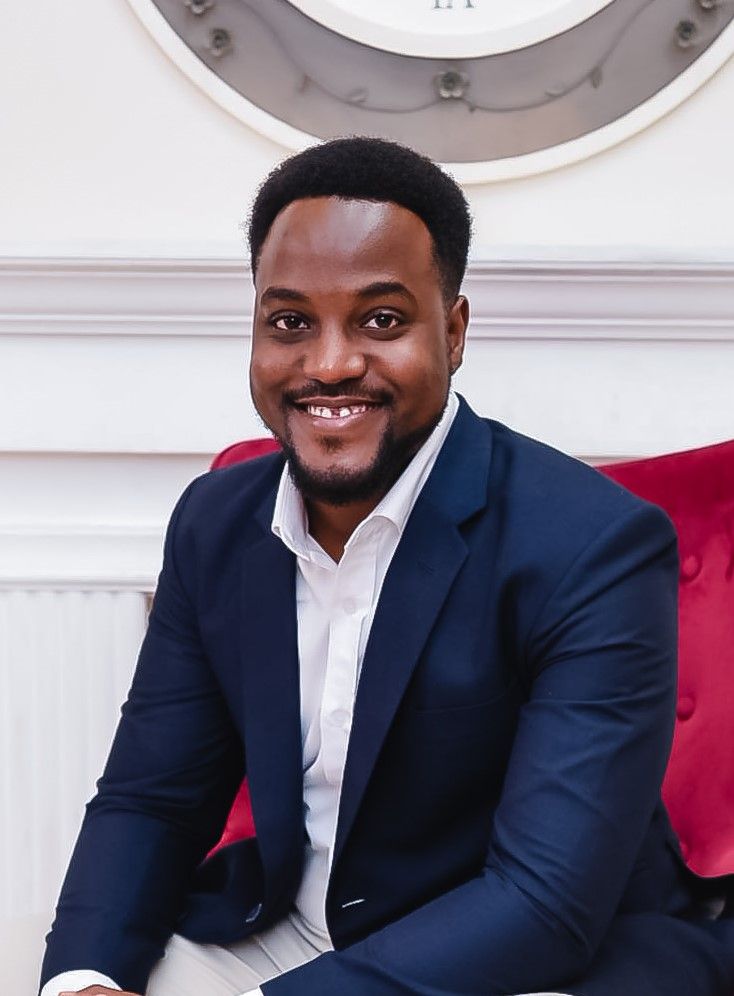
Why did you decide to join the council? And why is it important to you?
Marika: I like working at One Acre Fund and am passionate about our work for farmers. I previously used to say that if I were to leave the organization, it would be because of empty promises on equity and inclusion. I have witnessed the milestones we’ve attained and witnessed the fulfillment of our DEI commitments, and I am proud to be part of an organization that is committed to its people. I was excited to join the council because DEI is something I am very passionate about — I wanted to be part of the solution to the challenges the organization was facing in this area.
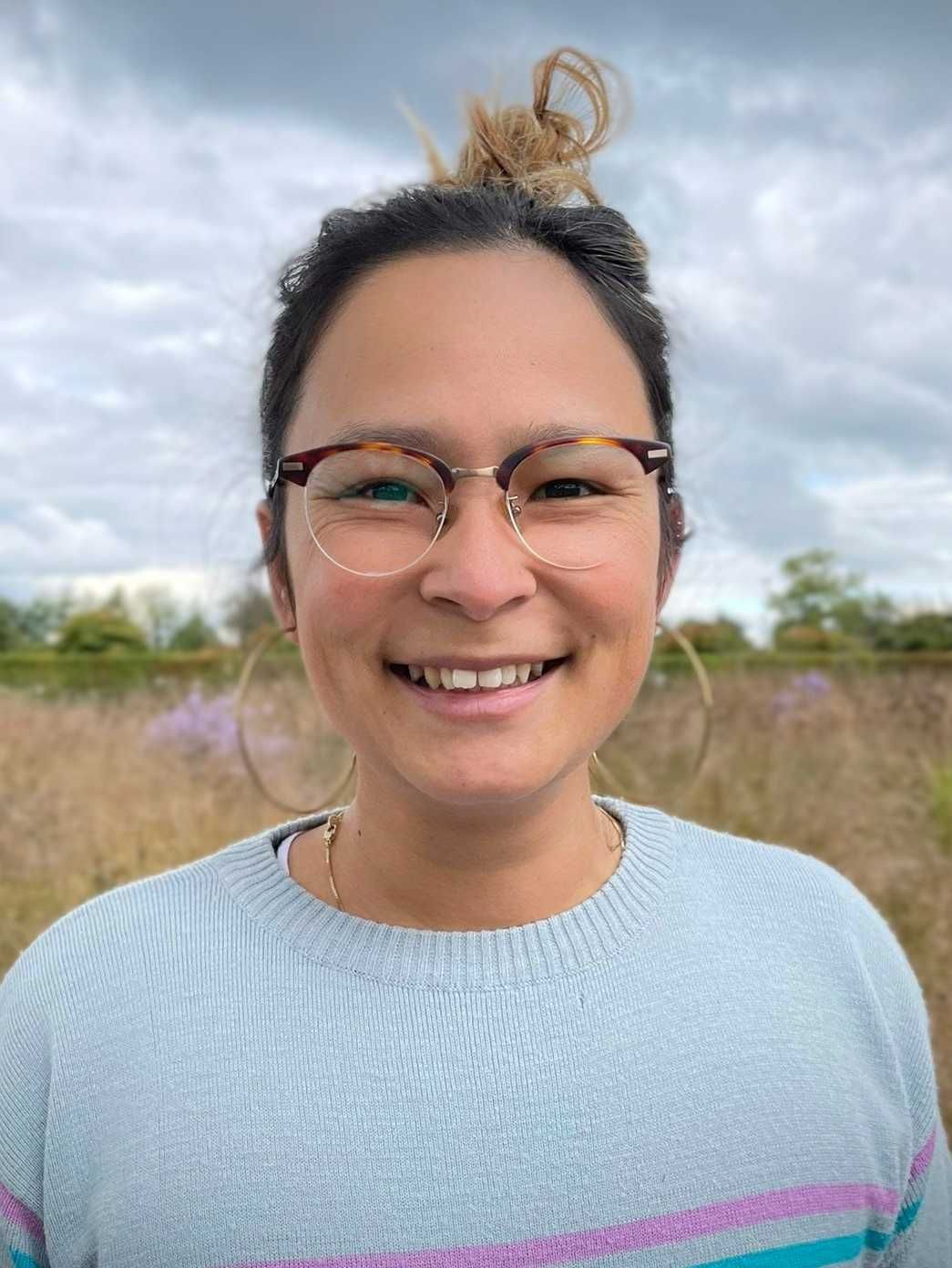
Amari: I have worked in our People and Field operations teams and experienced different facets of the work done by One Acre Fund, and witnessed staff concerns that needed attention. I knew that for me to remain committed as a leader, I needed to pour energy into creating an inclusive space for everyone. Joining the Council gave me an opportunity to move into social change because I knew I would be accountable.
Ronny: I firmly believe in One Acre Fund’s ability to improve the livelihoods of farmers and its staff. When I first joined the organization, I was in an unusual category — on one hand, I felt marginalized for being an African staff member and on the other hand, I experienced the advantage of being at a senior job level. I made a personal commitment to keep track of the key DEI issues as I saw them. When the chance was presented, I was excited to use my influence and credibility to advocate for better experiences for lower cadre staff.
How is the Council a game-changer for One Acre Fund?
Marika: From my point of view, there has been a mindset shift in DEI responsibility across the organization. This isn't just a human resource commitment but an organization-wide commitment. The DEI-C has pushed for leadership training that allows for knowledge sharing and idea refinement, which ensures leaders learn and implement inclusive leadership approaches that lead to a better workplace experience.
Amari: The organization is not an edified thing that sits above us and tells us what to do. One Acre Fund is made up of people, including our relationships and connections with one another. The Council strives to champion respectful, inclusive, open communication and good relations, which continue to bring meaningful impact. The DEI-C has challenged previous cultures and values, we understand that our people deserve the best, and we are tasked to hold leaders accountable. We have engaged in deep discussions about race, colonialism, and sexism, allowing us to understand each other better.
Ronny: On a personal note, DEI work is challenging and slow-moving, and I appreciate having like-minded colleagues who are passionate about DEI. A vibrant and supportive group of people has helped fast-track One Acre Fund’s DEI journey. While we still have a long way to go, we also have a lot to celebrate.
It’s been nearly two years since the DEI Council was formed in September 2020. In that time, how do you look back on/sum up the progress we’ve made on our ongoing DEI work?
Ronny: We recently finalized the feedback analysis for the Annual Staff Survey. In this survey, I was happy to observe that we did not regress in any of the 64 questions presented to staff — this shows a lot of change! The greatest improvement was in compensation and performance management, which cuts across all job levels, with the survey showing approximately 20% improvement in staff satisfaction in this area. We are also investing a lot of time and resources on inclusion, for example, this year, our field team went through a foundational DEI training that covered aspects such as bias and strategies to address it. There is room for more to be done this coming year, and we look forward to the next phase of work!
How do you define success in our ongoing DEI work?
Marika: Numbers never lie — with a background in data, I enjoyed analyzing the culture and inclusion survey to understand our progress and spot the specific areas that need additional effort.
Ronny: A soft win we saw last year was increasing the visibility of this work and having it discussed at the same degree of importance and urgency as our farmer-facing work. The various DEI workers and champions across the organization are proud of the prioritization of People and DEI commitments.
What does working in a multicultural organization like ours mean to you? How has it influenced your day-to-day work?
Amari: I am of mixed race, which makes me multicultural. This has influenced the type of work I enjoy — typically work that allows me to interact and connect with people from different cultures. I love that these cultural differences inform and influence the work One Acre Fund does and provides a safe space where we can recognize and leverage our different experiences, backgrounds, and traditions to get ahead. I recently transitioned into the Global Human Resource team and I’m excited to understand cultural inclusion in staff welfare.
Marika: I am also of mixed race, and being in a multicultural environment has made me intentional about being actively present, allowing for better interaction with new people and cultures. As a manager and a teammate, being present means thoroughly thinking through my default response and being open to different ways of solving challenges. To celebrate cultural diversity, we need to slow down, stay present, listen to understand and connect as individuals.
How do we celebrate cultural diversity at One Acre Fund?
Ronny: Different teams have different ways of expressing and celebrating our differences. Before COVID, we had exciting cultural days that celebrated diverse cultures within the organization: staff came dressed in traditional attire, and we would have interdepartmental competitions. One Acre Fund is a great workplace where our differences are not hidden or suppressed but recognized, appreciated, celebrated, and shared. That said, there are still areas we could improve, and we recently made improvements to our reporting channels to ensure we spot issues. The feedback we are hearing from staff has directly fed into our inclusion training and informal DEI talks, which we host once a quarter.
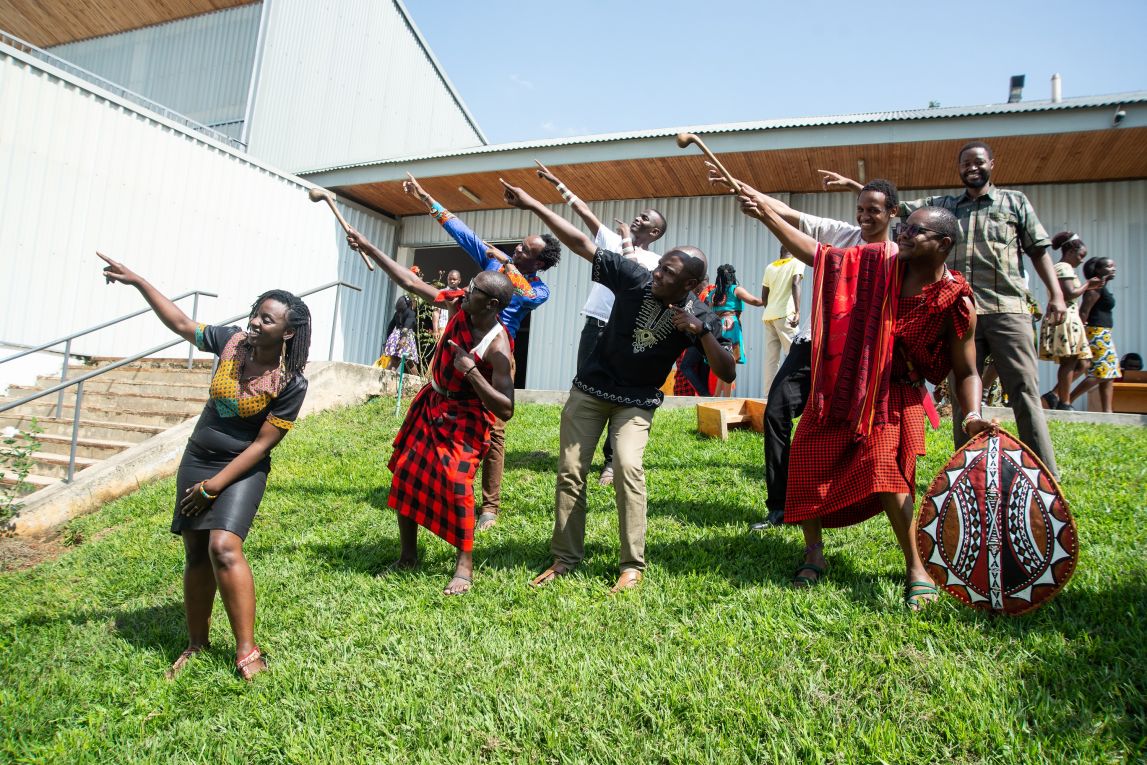
How does increased representation translate into the work we do/our impact on the farmers we serve?
Amari: It means more impact. Protecting the identities of our people and ending marginalization allows us to accept and connect with others fully. When people show up as their whole selves, they do better work, which translates into more impact for farmers. An important mandate for the DEI-C is to serve all staff, regardless of their background; this is not just a tick-box exercise but something we prioritize and plan to follow through.
What do the next 1/2/3 years look like for the Council?
Amari: Globally, the world is coming from a tough time with the COVID pandemic and the Black Lives Matter movement. The next one to three years will be about healing and prioritizing the hard-to-define challenges in diversity, equity, and inclusion. The DEI-C will probably start to expand its mandate beyond gender and race to issues such as social welfare, and I believe we can help people relate to their work better and help them feel more grounded in this ever-changing world.
How different will One Acre Fund look once this is achieved?
Amari: The organization will look however we want it to look — this will not be defined by old management styles but by being intentional about how we harness our different cultures and the authenticity we can bring to our structures and teams.
Ronny: I reflected on this a few months ago during a DEI-C coaching session, and I want us to build a great workplace experience where staff are happy, understand their roles, and want to have a long-term career at One Acre Fund. I want One Acre Fund to be a DEI leader and boundary-pushing organization in the humanitarian and development sector.
We believe that data can help us improve team satisfaction, help us understand where we are, and identify meaningful areas for improvement. To this end, we publish a yearly People and DEI report that also keeps us accountable. See the latest People and DEI report here.
